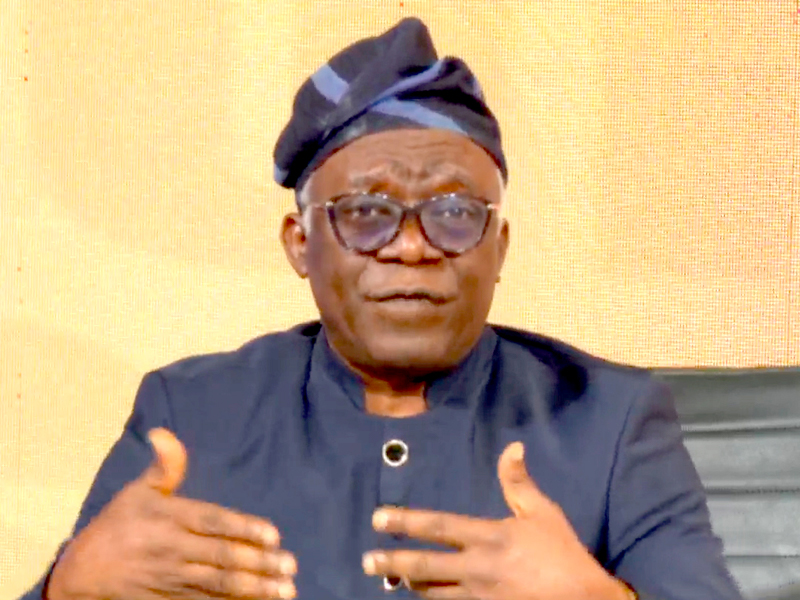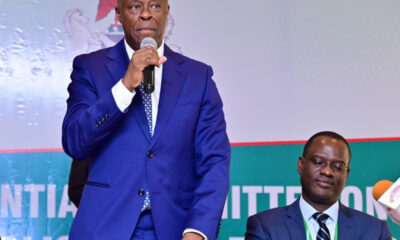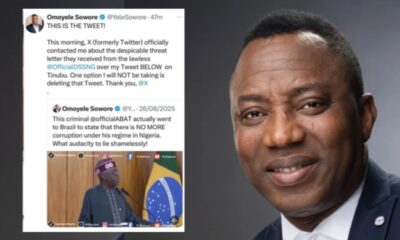Politics
Femi Falana Critiques Tinubu’s Policies, Calls for Democratic Accountability

Human rights lawyer, Femi Falana (SAN), has criticized the economic policies of the Nigerian government under President Bola Tinubu, asserting that they echo the missteps of previous administrations. In his interview, Falana emphasized the need for Nigerians to mobilize and demand genuine dividends of democracy, warning that the current policy framework, influenced by the International Monetary Fund (IMF), is detrimental to the populace.
Falana expressed discontent with the administration’s economic management, claiming it perpetuates a cycle of deception that benefits the ruling class while leaving ordinary citizens in despair. He stated, “At all times, it is a boom for the ruling class, but for the people, it is doom. Nigerians must mobilize this time around to demand the dividends of democracy.” This statement underscores a growing frustration regarding economic inequality in Nigeria.
Reflecting on the country’s economic history, Falana recalled the 1986 Structural Adjustment Programme introduced under General Ibrahim Babangida. He argued that Nigeria has been ensnared in a series of failed reforms that are merely rebranded to mislead the public. “Nearly forty years later, we are treading the same dangerous path. The government merely gives failed policies new names to deceive the people,” Falana asserted.
In his analysis, Falana criticized the government’s decision to devalue the naira while simultaneously removing subsidies and increasing the salaries of politicians. He labeled this combination of actions as “provocative and reckless.” Additionally, he questioned the rationale behind continuing to implement the expired 2024 budget while preparations for projects in 2025 are already underway.
Falana highlighted the inadequacies in social welfare funding, pointing out that legislation like the National Social Investment Programme Act, the Basic Health Care Provision Fund, and the National Health Insurance Authority Act remain underfunded. He noted the need for federal, state, and local governments to translate the tripled statutory allocations—resulting from subsidy removal—into tangible social services.
He urged the administration to strengthen the naira and eliminate illegal dollar transactions in Nigeria. Furthermore, Falana recommended that the government consider joining BRICS to diminish reliance on the US dollar.
On the political front, Falana cautioned against early campaigning for the 2027 elections, calling on the Independent National Electoral Commission (INEC) to enforce the provisions of the Electoral Act. He stated, “You cannot devalue the currency, dollarize the economy, remove subsidies, and then raise politicians’ pay. That is provocative. Nigerians must rise and demand what is rightfully theirs.”
The sentiments expressed by Falana reflect a broader public concern regarding economic policies that prioritize political elites over the welfare of the general population. The call for accountability and genuine democratic benefits resonates with many Nigerians who are eager for change.
-

 Entertainment2 weeks ago
Entertainment2 weeks agoAnn Ming Reflects on ITV’s ‘I Fought the Law’ Drama
-

 Entertainment1 month ago
Entertainment1 month agoKim Cattrall Posts Cryptic Message After HBO’s Sequel Cancellation
-

 Entertainment1 month ago
Entertainment1 month agoKate Garraway Sells £2 Million Home Amid Financial Struggles
-

 Entertainment3 weeks ago
Entertainment3 weeks agoMasterChef Faces Turmoil as Tom Kerridge Withdraws from Hosting Role
-

 Entertainment1 week ago
Entertainment1 week agoWhere is Tinder Swindler Simon Leviev? Latest Updates Revealed
-

 Entertainment2 weeks ago
Entertainment2 weeks agoITV’s I Fought the Law: Unraveling the True Story Behind the Drama
-

 Entertainment1 month ago
Entertainment1 month agoAldi Launches Cozy Autumn Fragrance Range Ahead of Halloween
-

 Entertainment2 months ago
Entertainment2 months agoSpeculation Surrounds Home and Away as Cast Departures Mount
-

 Entertainment1 month ago
Entertainment1 month agoMarkiplier Addresses AI Controversy During Livestream Response
-

 Lifestyle4 weeks ago
Lifestyle4 weeks agoSummer Flags Spark Controversy Across England as Patriotism Divides
-

 Science2 months ago
Science2 months agoAstronomers Unveil New Long-Period Radio Transient ASKAP J1448−6856
-

 Health1 month ago
Health1 month agoWigan and Leigh Hospice Launches Major Charity Superstore



















